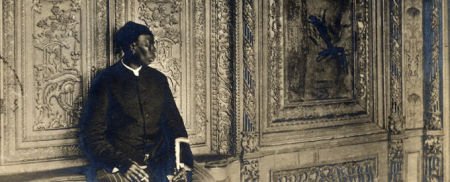Afro-Turks are usually the children and grandchildren of those who settled in Anatolia from Africa mostly came through the slave trade or other means during various periods of the Ottoman Empire. Most of them settled in the Aegean and Mediterranean regions, worked in the field of agriculture, and formed villages. There are also those who came from Africa and settled here one by one, both in the Ottoman Empire and the Turkish Republic period.

During the Ottoman period, people of African origin from Niger, Saudi Arabia, Libya, Kenya, and Sudan were brought to the Dalaman, Manavgat, Çukurova, Menderes, and Gediz plains through the slave trade, usually via Zanzibar. Also, some came from Crete during the 1923 Turkey-Greece Population Exchange and settled in the Aegean region, mostly in Izmir. People of African descent from Ayvalık say that their ancestors from Crete spoke Greek and learned Turkish later. Their number is around 10,000 to 20,000 individuals in modern Turkey.
Historical sources partially illuminate the question of why “Turks” of African origin mostly live in the Western Aegean Region, instead of in other regions of Turkey such as Central Anatolia, Northern Anatolia, or Eastern Anatolia. According to written sources, this tendency began in the second half of the 19th century, with the increase of foreign investments especially in the Western Aegean, many slaves were brought from Africa to be employed in tobacco and cotton farming.
Modern-day Afro-Turks, whose ties with their past were at the breaking point, began to search for their ancestors, question their past, and revive their traditions that were about to disappear, through the African Cultural Solidarity and Solidarity Association, which they founded in 2007. The most important of these traditions is the “Feast of Veal”. Afroturks in Izmir and Istanbul have been continuing the Veal Feast tradition for the last 14 years, which is still celebrated in many parts of Africa and shows gratitude to nature.
In this festival, which also has some religious rituals, Godya*, a natural leader, wishes health and forgiveness for his people. A calf is decorated and walked from house to house, donations that were attached to the calf and usually food were given to the poor and homeless children under Godya’s protection. The most important feature of the Veal Feast celebrated in Anatolia is that Afro-Turks communicate with each other through Godya, people come together, see each other, and exchange news. Godya also shared this information with other Godyas, so that distant relatives, distant family members would hear from each other.